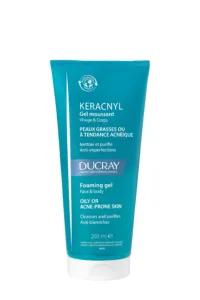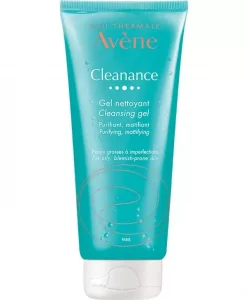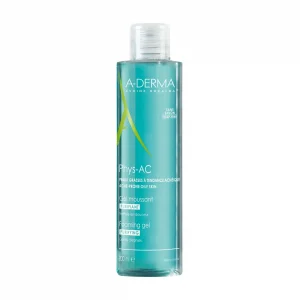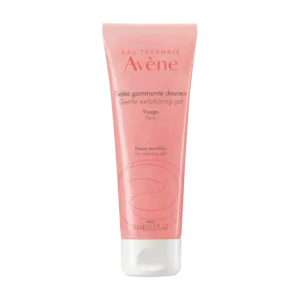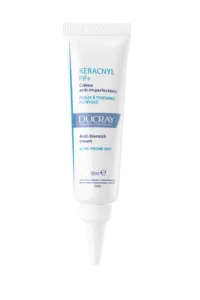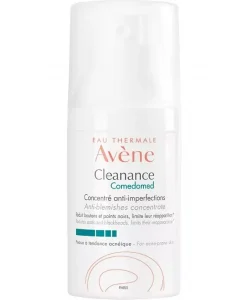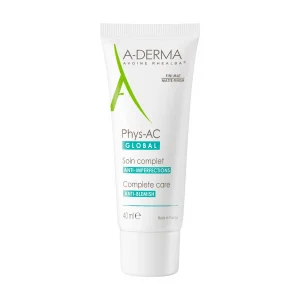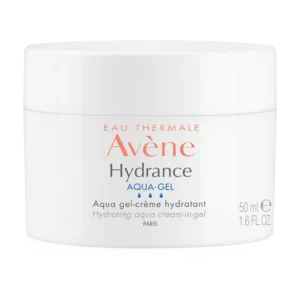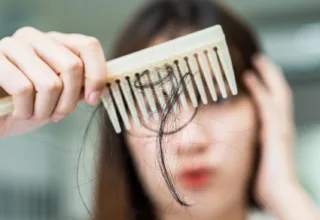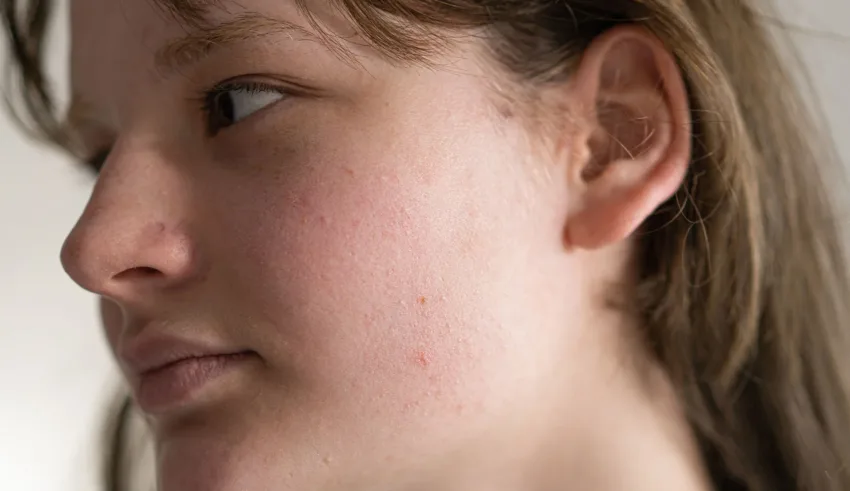
Imagine waking up every day with a flawless, blemish-free complexion. Hormonal acne may seem like the enemy, but fear not, because we’ve unlocked the secrets to help you win the battle! In this article and in collaboration with the dermatologist Dr. Mona Abdelghaffar, we’re about to reveal ground-breaking hormonal acne tips that will transform your skin and boost your self-confidence. Say goodbye to those annoying pimples and hello to the clear, glowing skin you’ve always dreamed of.
What’s behind hormonal acne?
Unlike other forms of acne, hormonal acne is triggered by hormonal fluctuations within the body. Understanding the root causes of hormonal acne is the first step to fighting it effectively.
According to Dr. Mona Abdelghaffar, hormones play an important role in the development of acne. Androgens, particularly testosterone, are the main hormones involved. These hormones stimulate the skin’s sebaceous glands to produce more sebum, leading to clogged pores and acne formation.
She adds that some people may be more prone to hormonal acne depending on their hormonal levels. Hormonal imbalances, such as increased androgen levels or hormonal fluctuations during puberty, menstrual cycles, pregnancy, or menopause, can contribute to the development of acne.
The main differences between hormonal acne and other types of acne lie in their shape and location. Dr. Mona Abdelghaffar reports that hormonal acne usually presents as deep, cystic lesions along the jawline, chin, and neck. It is often accompanied by other symptoms such as oily skin and irregular menstrual cycles in women. Other types of acne may be more widespread on the face and body.
What’s the relationship between diet and hormonal acne?
Believe it or not, what you eat can have a profound impact on your skin. Some foods can exacerbate hormonal acne, while others can lessen its effects. Dr. Mona Abdelghaffar notes that foods with a particularly high glycemic index and dairy products, which can increase insulin levels and inflammation in the body, trigger hormonal acne.
On the other hand, you should embrace these foods:
- Antioxidant-rich foods: Incorporating antioxidant-rich foods, such as berries, leafy greens, and colorful vegetables, can help combat oxidative stress and inflammation, which are often associated with acne.
- Omega-3 fatty acids: Foods rich in omega-3 fatty acids, such as oily fish (salmon, mackerel) and flaxseed, may have anti-inflammatory properties that benefit your skin.
- Vitamins and minerals: A sufficient intake of vitamins A, C, and E, as well as minerals such as zinc and selenium, is essential for skin health. These nutrients promote skin repair and overall complexion.
To have a balanced diet, it’s not enough to eliminate certain foods, you also need to incorporate the right ones. Here are a few tips for maintaining a diet that promotes clear skin:
- Moderation: It’s perfectly normal to indulge once in a while, but try to limit your intake of sugary, processed, and high-glycemic foods.
- Hydration: Good hydration contributes to skin health and the prevention of excessive sebum production. Drink plenty of water throughout the day.
- Meal planning: Plan balanced meals that include a variety of fruits, vegetables, lean proteins, and whole grains.
- Food sensitivities: Be aware of how your body reacts to certain foods. If you notice that specific foods consistently trigger rashes, consider eliminating or reducing them from your diet.
- Consultation: If you’re unsure about your food choices and their impact on your skin, consider consulting a dietician or healthcare professional for personalized advice.
Remember that dietary changes don’t necessarily produce immediate results when it comes to acne. It can take weeks, even months, before you notice an improvement in your skin.
Dr. Mona Abdelghaffar adds that stress can also trigger hormonal changes that contribute to acne outbreaks. And sleep patterns can also affect hormonal regulation.
What’s the right skincare routine for hormonal acne?
A customized skincare routine is your most powerful weapon against hormonal acne. Unlike one-size-fits-all approaches, a customized regimen addresses your skin’s specific needs and aims not only to treat existing acne but also to prevent future breakouts.
The essentials of a skin care routine:
1- Cleansing: A gentle, non-comedogenic cleanser is the foundation of any skin care routine. Cleansing twice a day, morning and night, removes excess sebum, dirt, and make-up without over-drying your skin.
Our favorite cleansers, below, prove that simply washing your face can be one of the most powerful ways to fight acne.
Ducray Keracnyl Foaming Gel
Eau Thermale Avène Cleanance Cleansing Gel
A-Derma Phys-AC Foaming Gel
2- Exfoliation: Exfoliating your skin 1 to 3 times a week, depending on the sensitivity of your skin, helps to unclog pores and remove dead cells. Look for exfoliants containing salicylic acid, a beta-hydroxy acid (BHA) that penetrates sebum to unclog pores.
Our pick:
Eau Thermale Avène Gentle Exfoliating Gel
3- Treatment products: Incorporate topical treatments that target acne. These may include benzoyl peroxide, which kills acne-causing bacteria, and topical retinoids, which help regulate skin cell turnover and reduce inflammation.
Find out below 3 acne spot treatments that will clear up your skin.
Ducray Keracnyl PP+ Anti-Blemish Soothing Cream
Eau Thermale Avène Cleanance Comedomed
A-Derma Phys-AC Global
4- Moisturize: Even acne-prone skin needs to be hydrated. Use a light, oil-free moisturizer to maintain the skin’s barrier function without clogging pores.
Our pick:
Eau Thermale Avène Hydrance Aqua-Gel
5- Sun protection: Sun protection is essential, especially if you’re using acne treatments that can make your skin more sensitive to the sun. Opt for a broad-spectrum sunscreen with an SPF of 30 or more.
We recommend the following sunscreen which is suitable for acne-prone skin:
Eau Thermale Avène Very High Protection Fluid SPF 50+
Other hormonal acne tips:
- Avoid frequent washing: Washing too often can strip the skin of its natural oils and lead to overproduction of sebum. Adopt a morning and evening cleansing routine.
- Don’t touch your face: Avoid touching your face, as you risk transferring dirt and bacteria from your hands to your skin.
- Clean your make-up brushes: Regularly clean your make-up brushes and applicators to prevent bacteria build-up.
- Drink water: Moisturize from the inside out by drinking plenty of water to keep your skin hydrated.
- Reduce stress: Find healthy ways to manage your stress, as high-stress levels can contribute to hormonal acne.
- Avoid harsh scrubs: Physical exfoliants containing abrasive particles can irritate acne-prone skin. Opt for chemical exfoliants instead.
By adapting your skincare routine to your skin type and addressing the specific needs of hormonal acne, you can dramatically improve the condition of your skin. Remember, results may not be immediate, and consistency is essential.
Dr. Mona Abdelghaffar points out that if left untreated, hormonal acne can lead to long-term effects such as scarring and hyperpigmentation. Early intervention is essential to prevent these complications. Treating hormonal imbalances early can help control acne flare-ups and minimize potential long-term effects.
Conclusion:
Hormonal acne can be a fearsome enemy, but armed with the right knowledge and strategies, you can win the battle for clear, radiant skin. This article has provided you with a wealth of information and practical advice for dealing with hormonal acne from a variety of angles. Remember, consistency and patience are the keys to implementing these hormonal acne tips. With determination and the right approach, you can pave the way to healthier, blemish-free skin and regain your self-confidence. Your journey to skin perfection begins now!
Last Updated on April 18, 2024
